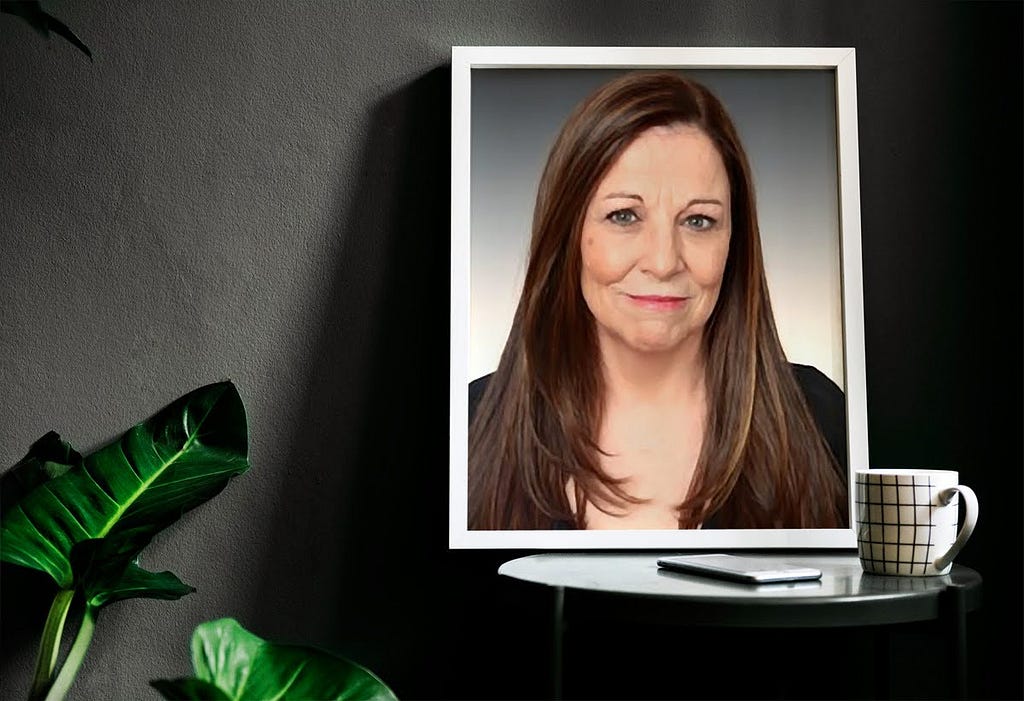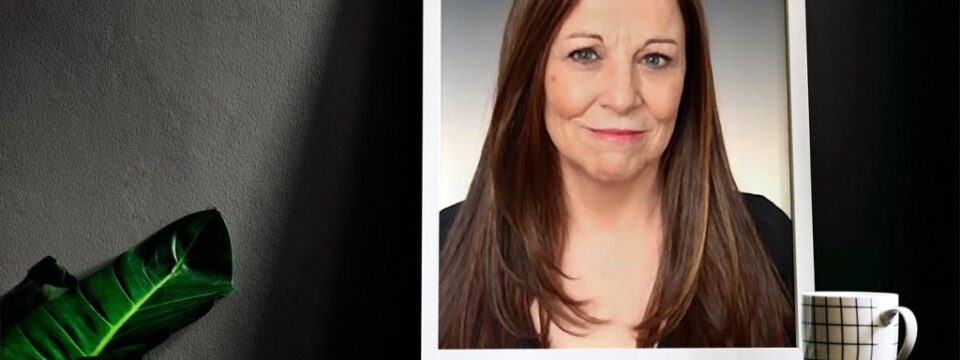Colleen Callan of Creative Path Productions: 5 Things I Wish Someone Told Me When I First Became A Filmmaker

I wish someone had told me how rewarding it is to tell the stories of courageous people. To have a positive influence on their lives, to educate and inform people of their options when faced with an environmental disaster that creates life and death consequences. It is a gift that both Timi and I will always treasure.
As a part of our series called “5 Things I Wish Someone Told Me When I First Became A Filmmaker”, I had the distinct pleasure of interviewing Colleen Callan.
Colleen is the director and producer of the educational documentary; Hot Water on Long Island. She has been a freelance investigative journalist working on Long Island stories for over thirty years. An Edward R. Murrow Award Winner, Colleen teamed up with co-Executive Producer, Emmy nominated Sound Engineer; Timothia Sellers-Hogan and together they formed Creative Path Productions LLC to make this serious documentary.
Thank you so much for joining us in this interview series! Our readers would love to get to know you a bit better. Can you tell us a bit of the ‘backstory’ of how you grew up?
I grew up in Queens, New York on the Nassau County border, not far from Belmont Racetrack. Earning my Master’s Degree from St. John’s University with a degree in Philosophy and Chinese and Japanese Intellectual History left just a few choices for a career path. Making a great Margherita got me through my college days and fared me well financially, for a freelance journalism career.
Can you share a story with us about what brought you to this specific career path?
I was working at a local restaurant in Westbury, Long Island, across the road from an historic horse Racetrack for Trotters called Roosevelt Raceway. Trackworkers from the Raceway came in to the bar telling stories of how Nassau County approved Industrial Development Agency bonds, in order to save the track and the many jobs associated with the horse racing industry. Instead, they claimed, the owners were allowing the track to go to seed. In a series of over a hundred articles published weekly in the local paper, as a freelance writer for over two years I uncovered a scheme by the owners to close the track for development, despite claiming their desire to save it. The articles caught the attention of Newsday columnist and Pulitzer Prize winner Sydney Schanberg, who wrote “The Killing Fields”. Schanberg wrote a series of columns based on my stories giving me full credit in his columns for my early investigative work. We became friends and I learned invaluable lessons about the right way to be a journalist from my time spent with him.
Can you share the funniest or most interesting story that occurred to you in the course of your filmmaking career?
Funny, not so much, interesting let’s see. On our first day of shooting our documentary, we decided to end with some drone footage of the area. Unfortunately, the drone ran out of power and came down over a sump and the only way to it was to go through 20 yards of poison ivy. Needless to say, we lost both the day’s footage and the drone. Lesson learned; remember always to remove the day’s shoot and put a new card in when switching to the drone.
Who are some of the most interesting people you have interacted with? What was that like? Do you have any stories?
Jimmy Breslin was one of the most interesting people I have filmed in the past. He was generous and funny and very blunt as you would expect if you ever read his work. Right before an interview we were doing about a column he had written about corrupt judges, he put a few saltines in his mouth. Since we were on his balcony at his apartment, we could not back up far enough to avoid the flying cracker bits. I was never sure if he did that just to fool around with us…as he had that familiar twinkle in his eyes the whole time.
None of us are able to achieve success without some help along the way. Is there a particular person who you are grateful towards who helped get you to where you are? Can you share a story about that?
The person who was the impetus for this documentary, is my business partner and friend in life and work, Timothia. Timi, to her friends). Without her encouragement and support, I would never have had the spark to move forward with the project. Timi is invaluable in her knowledge of the film making business and is an equal partner in every way.
Can you please give us your favorite “Life Lesson Quote”? Can you share how that was relevant to you in your life?
Sometimes, you need to be still. When the answers aren’t coming, take a breath and a break. Start fresh on a new day. You may find the obstacles are no longer in the way as time often changes things.
I am very interested in diversity in the entertainment industry. Can you share three reasons with our readers about why you think it’s important to have diversity represented in film and television? How can that potentially affect our culture?
Diversity is essential. Children need to see role models in front of and behind the camera so they know there are other people who look like them who succeed and thrive in the industry, so they know that they can too.
What are some of the most interesting or exciting projects you are working on now?
Working on a musical screenplay about a female bandleader who broke all barriers in her day. Can’t say too much more.
Which aspect of your work makes you most proud? Can you explain or give a story?
I wrote a story years ago that was published in the New York Times about a process serving company whose owner never had a Notary license and failed to serve and send nail and mail summonses as required by law. After the article the legislature changed the laws regarding process servers and required them to take a course, be licensed and keep records.
Ok super. Here is the main question of our interview. What are your “5 things I wish someone told me when I first started” and why. Please share a story or example for each.
I wish someone told me that the filming is only the beginning and the post production is where all the drama happens. Trusting an editor with your work is essential. We had an unfortunate situation, where an editor misled us on the editing system he was using that was not in sync with our system. We lost time and money and it was difficult to recover, especially during Covid. We persevered however and finally found the right person for the project and we were grateful to be able give him our trust that he so deserved.
I wish someone had told me that making the documentary is only step one. Marketing and distribution; is a world of its own and without knowledge and instruction in the field, one can make costly mistakes. My partner Timi was very smart and enrolled us in an online course. Taking the course in documentary film making was very helpful and essential in my opinion to help us avoid some common pitfalls. We recommend it highly.
I wish someone had told me how budgeting is key to any project’s success. One must allow for unexpected issues that can and will arise along the way. Have a cushion in your budget for life’s unexpected surprises. Covid was just emerging when we started post production, it added a full year to the project.
I wish someone had told me about Errors and Omissions Insurance. Something one must have, yet until I was ready to publish, had not heard of it. It is essential to protect your project as even if you don’t make any mistakes, it doesn’t stop anyone from taking legal action, which you will have to defend against, even if you are right.
Finally, I wish someone had told me how rewarding it is to tell the stories of courageous people. To have a positive influence on their lives, to educate and inform people of their options when faced with an environmental disaster that creates life and death consequences. It is a gift that both Timi and I will always treasure.
When you create a film, which stakeholders have the greatest impact on the artistic and cinematic choices you make? Is it the viewers, the critics, the financiers, or your own personal artistic vision? Can you share a story with us or give an example about what you mean?
For me it is the subjects of the film. They have the most skin in the game, more than the investors and more than the crew. Their stories deserve the utmost respect and care and all our choices are with their best interest in mind as they have found the strength and courage to speak out about a potentially cancer causing toxic detritus in their communities, despite backlash from many who are concerned with the loss of their property values.
You are a person of great influence. If you could start a movement that would bring the most amount of good to the most amount of people, what would that be? You never know what your idea can trigger. 🙂
I would pass a simple law, making gun owners buy liability insurance for their weapons, just like people do with cars.
We are very blessed that some of the biggest names in Business, VC funding, Sports, and Entertainment read this column. Is there a person in the world, or in the US whom you would love to have a private breakfast or lunch with, and why? He or she might see this. 🙂
I would love to have lunch with Rita Wilson, as I would like her to be the director of my new musical/screenplay and to play a pivotal role in the film as well.
How can our readers further follow you online?
They can go to my Twitter page…
ColleenCallan@NewYorkScribe or go to hotwateronlongisland.com
This was very meaningful, thank you so much! We wish you continued success!
Colleen Callan of Creative Path Productions: 5 Things I Wish Someone Told Me When I First Became A… was originally published in Authority Magazine on Medium, where people are continuing the conversation by highlighting and responding to this story.
